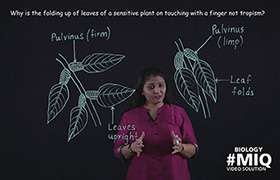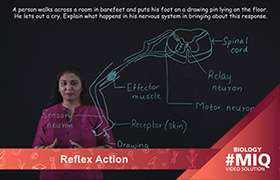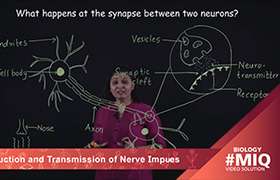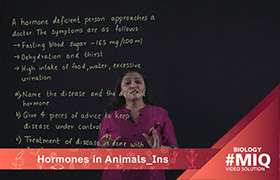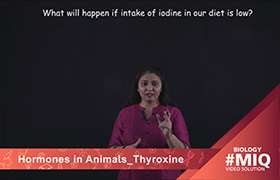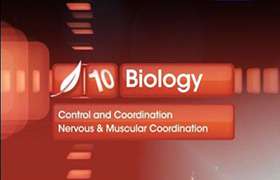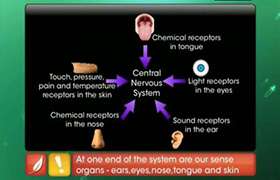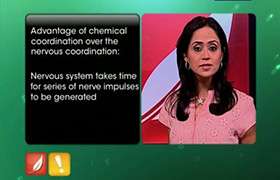CBSE Class 10 Answered
Chemical coordination is done in plants through the action of hormones.
Plant hormones, also known as phytohormones are chemicals that regulate plant growth. Plant hormones are signal molecules produced within the plant, and occur in extremely low concentrations. Hormones regulate cellular processes in targeted cells locally and when moved to other locations, they act there. Hormones also determine the formation of flowers, stems, leaves, the shedding of leaves, and the development and ripening of fruit. Plants, unlike animals, lack glands that produce and secrete hormones. Plant hormones shape the plant, affecting seed growth, time of flowering, the sex of flowers, senescence of leaves and fruits. They affect which tissues grow upward and which grow downward, leaf formation and stem growth, fruit development and ripening, plant longevity and even plant death. Hormones are vital to plant growth.
The imporatnt hormones in plants are:
i) Auxins are compounds that positively influence cell enlargement, bud formation and root initiation. They also promote the production of other hormones and in conjunction with cytokinins, they control the growth of stems, roots, fruits and convert stems into flowers.
ii) Cytokinins influence cell division and shoot formation. They also help delay senescence or the aging of tissues, are responsible for mediating auxin transport throughout the plant, and affect internodal length and leaf growth.
iii) Ethylene affects fruit-ripening. Ethylene is produced at a faster rate in rapidly growing and dividing cells, especially in darkness. New growth and newly-germinated seedlings produce more ethylene than can escape the plant. Ethylene affects cell growth and cell shape. (When a growing shoot hits an obstacle while underground, ethylene production greatly increases, preventing cell elongation and causing the stem to swell. The resulting thicker stem can exert more pressure against the object impeding its path to the surface)
iv) Gibberellins are important in seed germination, affecting enzyme production which mobilizes food production used for growth of new cells. GAs produce bolting of rosette-forming plants, increasing internodal length. They promote flowering, cellular division, and in seeds growth after germination. Gibberellins also reverse the inhibition of shoot growth and dormancy induced by ABA.
v) Abscisic acid, in general acts as an inhibitory chemical compound that affects bud growth, seed and bud dormancy. It is important in combating water stress.

